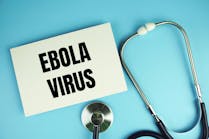The CDC and its U.S. government partners have released the first federal collaborative report listing the top zoonotic diseases of national concern for the U.S. Zoonotic diseases are illnesses that can spread between animals and people.
The CDC, U.S. Department of the Interior (DOI), and U.S. Department of Agriculture (USDA) developed the report after jointly hosting a One Health Zoonotic Disease Prioritization Workshop for the U. S. During the workshop, agencies agreed on a list of eight zoonotic diseases that are of greatest concern to the nation and made recommendations for next steps using a One Health approach.
The zoonotic diseases of most concern in the U.S. are: Zoonotic influenza, Salmonellosis, West Nile virus, Plague, Emerging coronaviruses (e.g., SARS [severe acute respiratory syndrome] and MERS [Middle East respiratory syndrome]), Rabies, Brucellosis, and Lyme disease.
Six out of every 10 infectious diseases in people are zoonotic, which makes it crucial that the nation strengthen its capabilities to prevent and respond to these diseases using a One Health approach. One Health is an approach that recognizes the connection between people, animals, plants, and their shared environment and calls for experts in human, animal, and environmental health to work together to achieve the best health outcomes for all.
This workshop was the first time multiple government agencies in the U.S. worked together on this topic and is a critical step toward a coordinated U.S.-specific approach to One Health. The workshop report outlines the process, the resulting list of prioritized zoonotic diseases, and discussions and recommendations by the participants.
This report is a new resource for organizations that work on One Health issues, the media, and other stakeholders and includes recommendations on how to work together to address the prioritized diseases and strengthen One Health efforts in the United States.
The U.S. One Health Zoonotic Disease Prioritization report is available online




